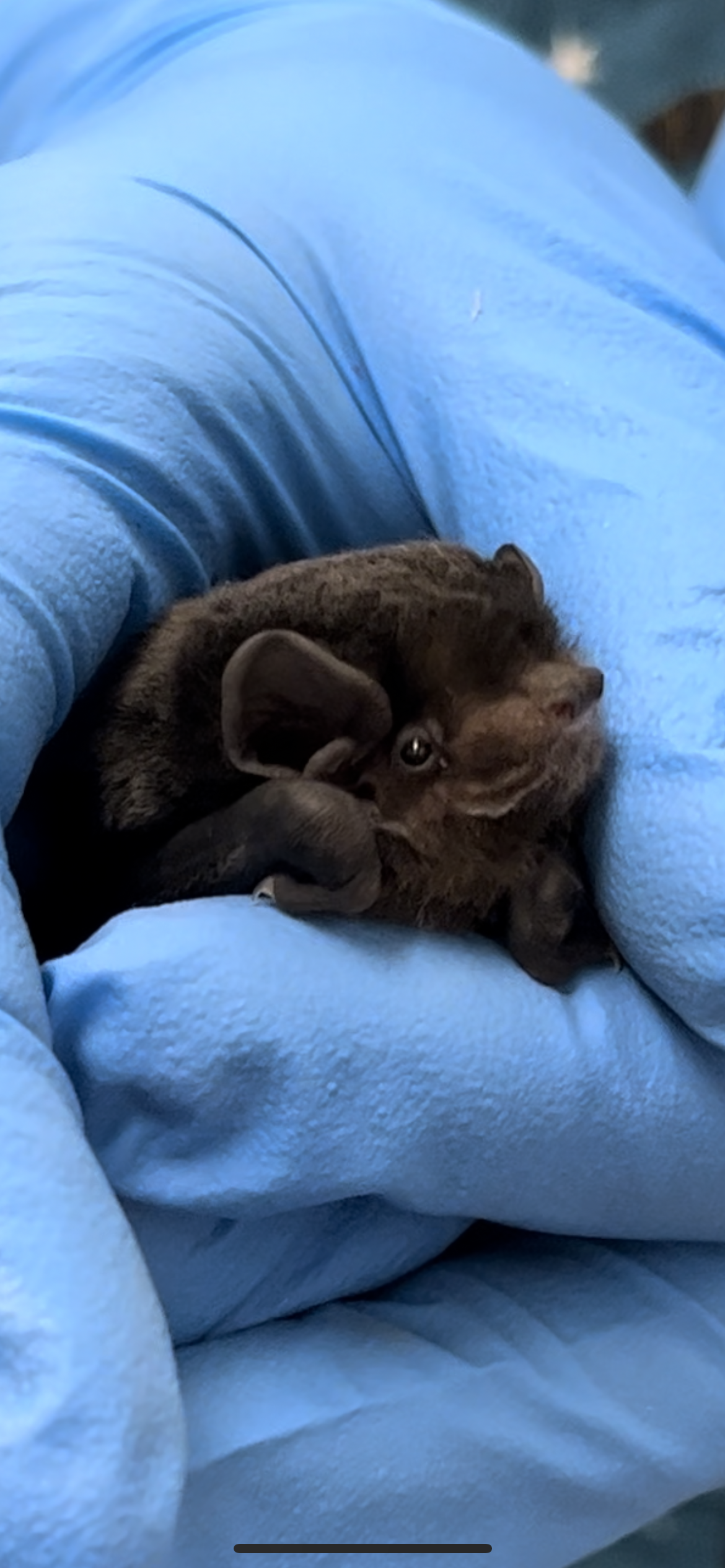Microbat flies again after remarkable recovery
A teeny-tiny microbat has made a huge recovery at Werribee Open Range Zoo after being found unable to fly at a park in Werribee’s north.
Locals stumbled upon the juvenile female Gould’s wattled bat, affectionately nicknamed Bee, at the base of a tree.
Weighing only six grams and appearing weak, she was promptly transported to Werribee Open Range Zoo's vet team for medical assessment.
Bee underwent a full physical examination under anaesthetic, including a hydration assessment and radiographs.
Werribee Open Range Zoo Veterinarian Jen O’Dwyer said the tests and scans indicated no broken bones or underlying injuries, but revealed the young microbat was malnourished and suffering from hypothermia.
“Microbats should never be on the ground, so it can often indicate they’re injured,” Dr O’Dwyer said. “Juvenile bats can also struggle to fly, fall to the ground and become separated from the family groups they live in.”
The vet team at Werribee Open Range Zoo warmed Bee up using a heated medical device and provided fluid therapy prior to hand-feeding her mealworms.
Bee then spent three weeks being nurtured by a carer from Wildlife Victoria before
being transferred to a flight aviary and, finally, being released back into the same park where she was found.
“It’s important that microbats are released where they came from as they live in family groups, called colonies, that speak the same language,” Dr O’Dwyer said. “It’s absolutely wonderful to see this microbat healthy and strong and able to fly back to her family again.”
The Gould’s wattled bat is just one of 68 species of microbats native to Australia. Microbats are small, mainly insectivorous bats that navigate and feed using echolocation – a sound-reflection technique that allows bats to hunt in pitch darkness.
Dr O’Dwyer said there are some simple actions the community can take if they encounter a microbat in distress in the wild.
“If you encounter a microbat on the ground there’s a chance it is suffering from an injury or malnourishment,” Dr O’Dwyer said. “Wildlife can become highly stressed when a human approaches, especially bats, so it’s always important to keep your distance.
Please contact Wildlife Victoria or your local wildlife carer who will be able to provide
expert advice about the best course of action to take.”

